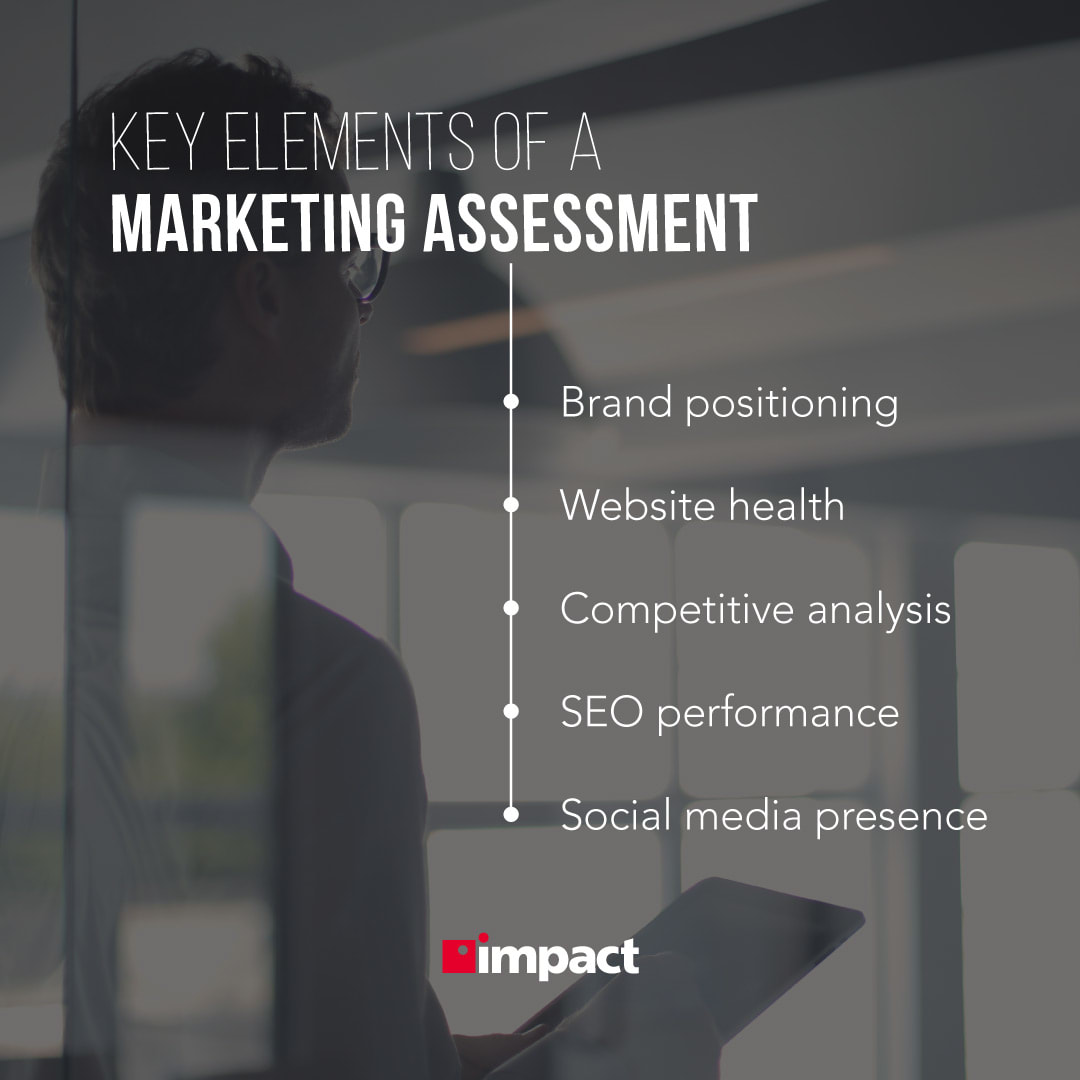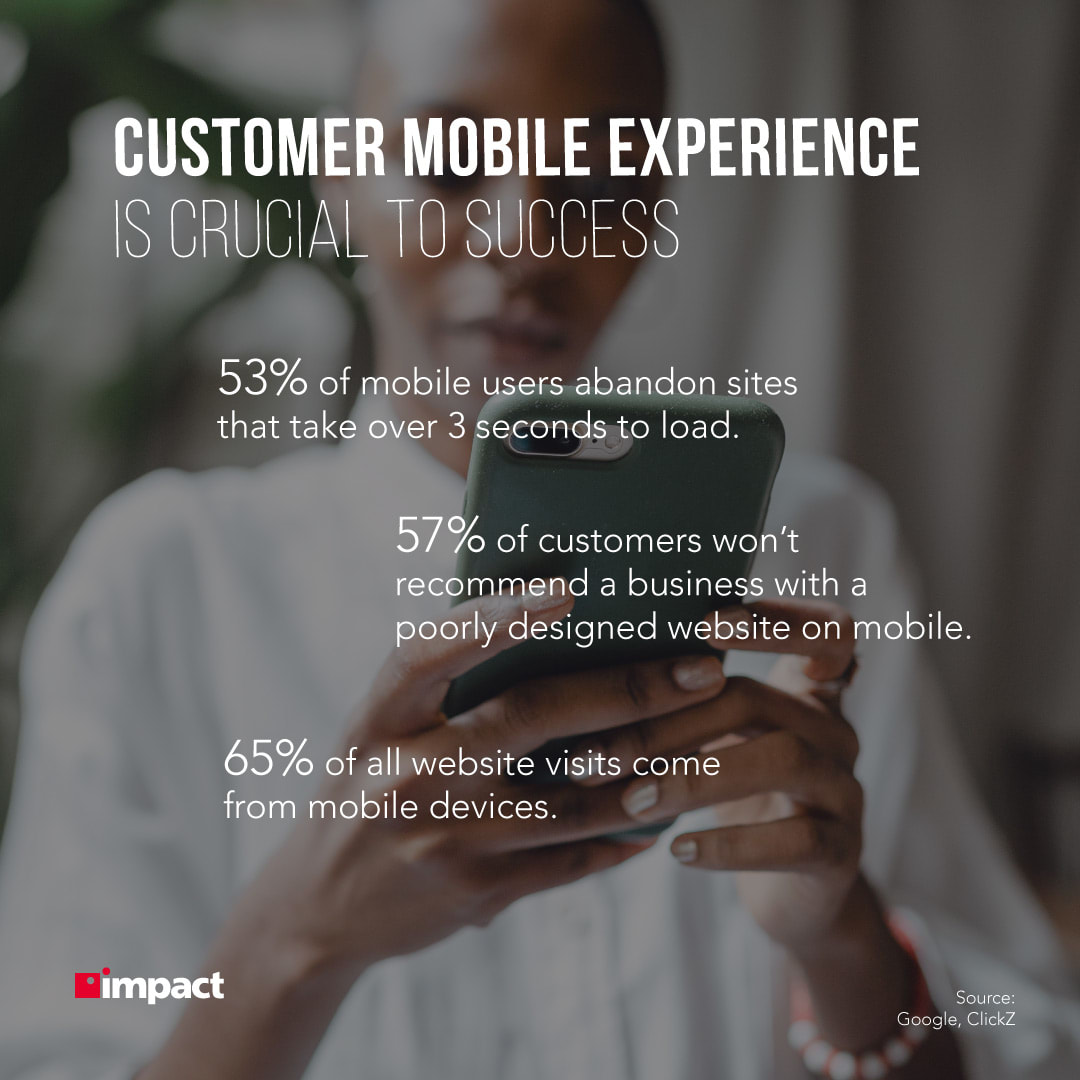Conducting a marketing assessment is sort of like working on a puzzle. The picture of the finished puzzle on the box is the market research, completing the border of the puzzle before working on the interior is the audience definition, and the trial and error of completing the interior is akin to executing the marketing strategy you develop.
In other words, a marketing assessment, or audit, analyzes your company’s assets and activities in order to determine what your strengths are, what your weaknesses are, and make recommendations on what you should do in order to best position your brand to take advantage of your market and audience.
This assessment is important to conduct as it lets you know where you currently stand within your industry, what you’re already doing well, and where there’s room for improvement.
A marketing assessment typically involves a detailed analysis of the business and its operations, defining the target audience, and learning as much information about the market competition as possible. Equipped with this information, the assessment can lead to a sophisticated long-term marketing strategy custom-designed to help your business reach its most ambitious goals.
Today, we’ll be giving you an overview of what Impact’s managed marketing services include when our team conducts assessments for clients.
If you want to focus on core business operations and workflows but know you need high-quality data-driven marketing, get in touch with Impact for expert guidance on a long-term marketing strategy that all begins with an assessment.
Defining a Digital Marketing Assessment
For the purposes of this blog post, we’ll be mostly talking about marketing assessments with regard to digital marketing as opposed to traditional marketing.
Because of this, the components that make up this kind of assessment will for the most part be strictly limited to digital marketing and branding as far as the business is concerned.
When we talk about the “assessors” or “auditors” who are performing the assessment, we’re referring to a team of people comprising a variety of professions, including design, copywriting, UX (user experience), research and insights, and management.
1. Understanding Your Business
The first step of a marketing assessment is for the auditors to get a better understanding of your business.
What are your long-term goals? Is it to build credibility in your industry or do you have a monetary objective you’ve set for yourself? How do you want to evolve the service or product that your offer to customers? What are your near-term goals? These are the questions an assessment needs to get to the bottom of.
The assessors will want to know your values, your mission, and what sets you apart from other businesses in your industry.
They will also assess your business challenges in general, as well as your marketing challenges. Do you have the right data and processes at hand to land qualified leads?
To get a clear understanding of what makes your business, the team will then make an assessment of your brand character and identity as you yourself communicate it.
This will be assessed by taking a look at your branding, your slogan, how you present your company’s history—every component that is responsible for presenting your organization to customers and prospects.
47% of businesses do not have a defined digital marketing strategy for their campaigns.
2. Understanding Your Audience
Recognizing and understanding the behavior of consumers is essential for a marketing assessment and strategy. This is where your assessment will take a deep dive into what drives and motivates sales and the makeup of your targets.
Your marketing assessment will help you build a picture of who you are targeting and what your average customer looks like.
This can, for example, take a dive into the demographic makeup of your audience, including their age, race, gender, marital status, and home-ownership status—all the aspects which together help you market effectively in your campaigns to your targets.
This will be where you will get a better understanding of what your audience wants from a business like yours and what their online behavior is.
This will be expanded on by the assessors analyzing what your potential customers are searching for online. What interests them? What questions are they asking and which brands are best helping your audience answer them?
Only by understanding your audience can you meet their expectations and position yourself to take advantage of their interest in what you have to offer in a way that’s appealing to them.
3. Understanding Your Competitors
The only way to beat your competitors in the market is to recognize their capabilities in comparison to your own.
At this stage in the assessment, your assessors will analyze your competitor's offer and perform a market assessment to draw up a document that demonstrates their value proposition to customers, what you’re offering, and where there is potential for you to improve your existing services and market what you do best.
This competitive analysis will also examine numerous other aspects of how your rivals’ market, including the strength of their website, which will take into account a number of different considerations. Some of these include:
- How sleek and contemporary is it?
- Is its site faster or better designed from a UX standpoint?
- How do they tell their story and is it effective?
- Do they feature technical elements that help a consumer or customer, like a chatbot?
- Do they have an appealing palette that will better draw in customers?
The assessors will then assess their brand messaging. How do your competitors communicate their vision to potential customers? What’s their tone of voice? What do they emphasize in their messaging and how?
At this stage in the audit, your competitors’ domains will be compared and a gap analysis will be performed to see which websites command the most authority.
Understanding this is important, as the business that commands the most authority with its site will have the easiest time ranking well for keywords and showing up first for prospects in search engine queries.
A gap analysis will show you which terms and keywords your competitors are ranking for, what terms they’re targeting, and where you fit in by comparison.
49% of users say they use Google to discover or find a new item or product.
For example, if you’re an IT repair shop and a competitor is outranking you locally for related terms, they will bring more eyes to their site than you.
This will help you understand what terms you should be competing for to drive more leads to your site and will also help direct your content strategy.
4. Understanding Your Current Activities
Now, the market assessment will take a look at your current marketing activities.
Much of this digital analysis will focus on your website. The reason for this is quite simply that, your website is your storefront, the first port of call for potential customers, and, often, the number one reason that these same prospects can be turned off from a brand.
The assessors will use analytics tools to assess your site traffic. Where’s it being driven from? Is direct traffic responsible for the most visitors? Or is it organic traffic (from search engines)? Or referrals through shared links? Or from social media?
The marketers will look at where traffic is coming from around the country, helping you put together a strategy that can target geo-specific audiences.
97% of consumers searched online to find a local business.
They will also show you the paths that visitors take to get to your site. Are they seeing one page and leaving? Are they progressing through an effective sales funnel?Is it modern, fast, and competitive by the standards of today? Is it mobile-optimized?
Your assessors will use diagnostic tools to determine how many error codes your site has, how much duplicate content you have, and other things that can negatively affect your site's performance.
This is your opportunity to see the health of your website and how well it performs.
You will also have your social media audited—how many impressions are you generating? Are you using social channels to reach out to your customers effectively?
56.1% of internet users purchase a product online at least once a week.
These are the key questions that will be assessed, asked, and answered during an audit of your current digital marketing activities.
5. What Next?
This is the final stage. At this point your assessment is complete and our experts will make recommendations made based on their findings.
Every business will have its own strengths and weaknesses, so the final recommendations will be highly dependent on the particular company receiving the audit. But, that’s not to say there aren’t commonalities among businesses in general.
For example, if a business is not communicating its mission effectively to prospects, you might be encouraged to pursue a brand refresh, helping you position yourself better to customers.
If you’re not connecting meaningfully with your target audience, we may recommend a profile creation process, involving a more extensive research phase into what your audience wants.
It can then be taken one step further by developing a value proposition, where the team will define the content and messaging which will best appeal to the target group.
For businesses with a website that needs improving, a technical refresh might be desirable, while ongoing content creation for blogs, email campaigns, and social media can be adopted in order to drive more engagement, cross-selling, lead generation, and better SEO performance.
70% of internet users want to learn about products through content versus traditional advertisements.
These are just a few examples of the many recommendations and changes that can be made after a sales and marketing assessment.
While this blog serves as something of an overview, most assessments will be unique to a specific organization, and recommendations for strategy will vary.
Final Thoughts on Marketing Assessments
Conducting a thorough marketing assessment gives you much more visibility into the assets you’re currently working with, the tactics you’re using, and how effective your current marketing efforts are.
It also provides you with a deeper level of insight into business operations, the industry as a whole, and the target audience that will best mesh with your offerings. Equipped with all of this information, you can craft a long-term, data-driven, and targeted marketing strategy that will help you meet your goals.
The first step to elevating your marketing strategy begins with a comprehensive marketing assessment that helps communicate the core value of your ideas.
Modern marketing challenges used to be engaging, unique, and creative while also being data-driven, strategic, and omnichannel. Accomplishing all of this is no easy feat, especially in the face of a hyper-saturated market that’s swollen with competition. If you want expert guidance on your marketing strategy to help you weed through all the noise, get in touch with Impact today.


